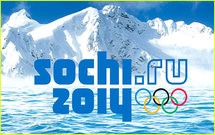 Russia has come a long way from the chaotic and fractured days following the collapse of the Soviet Union. Now that the country is relatively strong and stable, it can extend its influence back into former Soviet states and compete with other world powers in regions beyond. Stratfor has examined this important geopolitical trend since its inception at the turn of the 21st century. Below is a chronology of Stratfor's coverage of the most important events and drivers of Russia's resurgence.
Russia has come a long way from the chaotic and fractured days following the collapse of the Soviet Union. Now that the country is relatively strong and stable, it can extend its influence back into former Soviet states and compete with other world powers in regions beyond. Stratfor has examined this important geopolitical trend since its inception at the turn of the 21st century. Below is a chronology of Stratfor's coverage of the most important events and drivers of Russia's resurgence.
Russia on the Edge of Change
Oct. 11, 1999: At the turn of the century, Stratfor saw Russia on the edge of a wholesale transition:
Russia's die is cast. The great post-Communist economic and political experiment has failed … Russia's current political and economic situation is unsustainable, and the country faces a choice: return power to the perestroikists -- open to Western investment but only under carefully controlled terms -- or surrender to reactionaries, who oppose Russia's kleptocrats. The reformists have had their chance; they have no legitimacy in Russia.
Putin and the Oligarchs: The Battle for Russia
July 14, 2003: Russia in 1999 was economically, politically and socially devastated, and Western forces were encroaching on its borderlands. Something had to change or Russia would have remained broken and weak. This is what generated the rise of Vladimir Putin and his team of KGB alumni, alongside deep social and economic thinkers.
Between 2000 and 2007, Putin's first order of business was to clean house. The Kremlin recentralized the country politically under a pro-Putin political party and socially by rallying nationalism and wooing the youths under the guise of the Nashi youth movement. Economically, the Kremlin recentralized the majority of business and financial drivers in the country, mostly by creating state champions for energy transit, banking and more -- purging oligarchs who resisted. Russia also launched the Second Chechen War in order to get militancy under control and to prevent secessionist movements.
Russia Leverages Energy for Influence
Jan. 18, 2006: As the Kremlin's control over Russia solidified, Moscow turned its attention to its periphery and to the growing pro-Western movement on the edge of the Russian sphere of influence. The pro-Western Rose Revolution in Georgia in 2003 and the Orange Revolution in Ukraine in 2004 -- as well as those two countries' discussions on potential membership in NATO and the European Union -- set Russia in motion to start pushing the tide back.
Beyond Moscow's political relationships with the former Soviet states, Russia had two primary tools to push back Western influence and reverse the countries' pro-Western tilt: its economic and military power. Between 2006 and 2009, Russia used its massive exports of oil and natural gas through Ukraine to Europe as leverage both in Ukraine and among many other European nations -- particularly Germany -- relying on selective pricing, cutoffs and negotiations to extend Moscow's influence.
Russia Flexes its Muscles in the Former Soviet States
Aug. 18, 2008: Russia flexed its muscles in 2008 when it went to war with Georgia. Moscow's goal was to show former Soviet states seeking alliances with NATO that the West could not back up its security commitments.
The Russian Customs Union
Oct. 31, 2011: By 2010, Russia had expanded its plans to re-establish influence in former Soviet states by introducing a new alliance system called the Customs Union, which Moscow says will be transformed into the Eurasian Union by 2015. Currently only Russia, Belarus and Kazakhstan are members, but there are plans to expand the union to include Armenia and Kyrgyzstan.
Former Soviet States Choose Between East and West
July 12, 2013: The concept of a Russia club has now driven many former Soviet states to choose between closer ties with the European Union or with the Customs Union. This type of dilemma sparked the current political crisis in Ukraine. Russia's constant pressure on many of former Soviet states has led to adjustments in previously anti-Russian governments, as seen in Georgia in 2013. Russia has been able to prevent countries like Georgia and Ukraine from further integrating with the West -- though it has not yet been able to pull them into its own bloc.
Editor's Note: As global attention turns to Russia during the 2014 Winter Olympics in Sochi -- with questions about security and culture at the fore -- Stratfor is publishing collections of analyses that illuminate the geopolitical context of the region. The following is the first installment of this series.
Next: A chronology of militancy in the Russian Caucasus.
Courtesy : Stratfor (www.stratfor.com)